Tuesdays
Deep Seijun: Rare Films of Suzuki Seijun
Programmed by Will Carroll
In February 2017, the great Japanese filmmaker Suzuki Seijun (born Suzuki Seitaro) passed away at the age of 93. In a career spanning fifty years, Suzuki directed more than sixty theatrical and television films, working in genres ranging from thrillers to romances to horror to gangster movies, and in industrial contexts ranging from B-genre movies in the Japanese studio system to the international art-house circuit. In spite of his long and prolific career, Suzuki's reception in the West has largely been limited to a small number of films made during the end of his tenure at Nikkatsu (Youth of the Beast, Gate of Flesh, Story of a Prostitute, Tokyo Drifter, Fighting Elegy, and Branded to Kill) and to the later films that were received on the international art-house circuit (the Taisho Trilogy, Pistol Opera, and Princess Raccoon). Great as those films are, the emphasis on them has obscured a great many other important aspects of Suzuki's work: his more classical (yet still excellent) early films at Nikkatsu, his scintillating television work for weekly horror and thriller series in the 1970s and 1980s, his extended tenure as showrunner of the Lupin III animated series, and his bizarre and playful later films that did not make it to the international festival circuit. Even his late Nikkatsu period is filled with gems that are rarely seen outside Japan. Though we have not been able to cover all of these aspects of Suzuki's career, we have chosen to emphasize some of his lesser known films in this series. In so doing, we hope to broaden our collective understanding of this great director's work.
This series is sponsored by the Committee on Japanese Studies at the Center for East Asian Studies. 35mm prints courtesy of The Japan Foundation Film Library.


1/9/2018 @ 7:00 PM
Tokyo Drifter
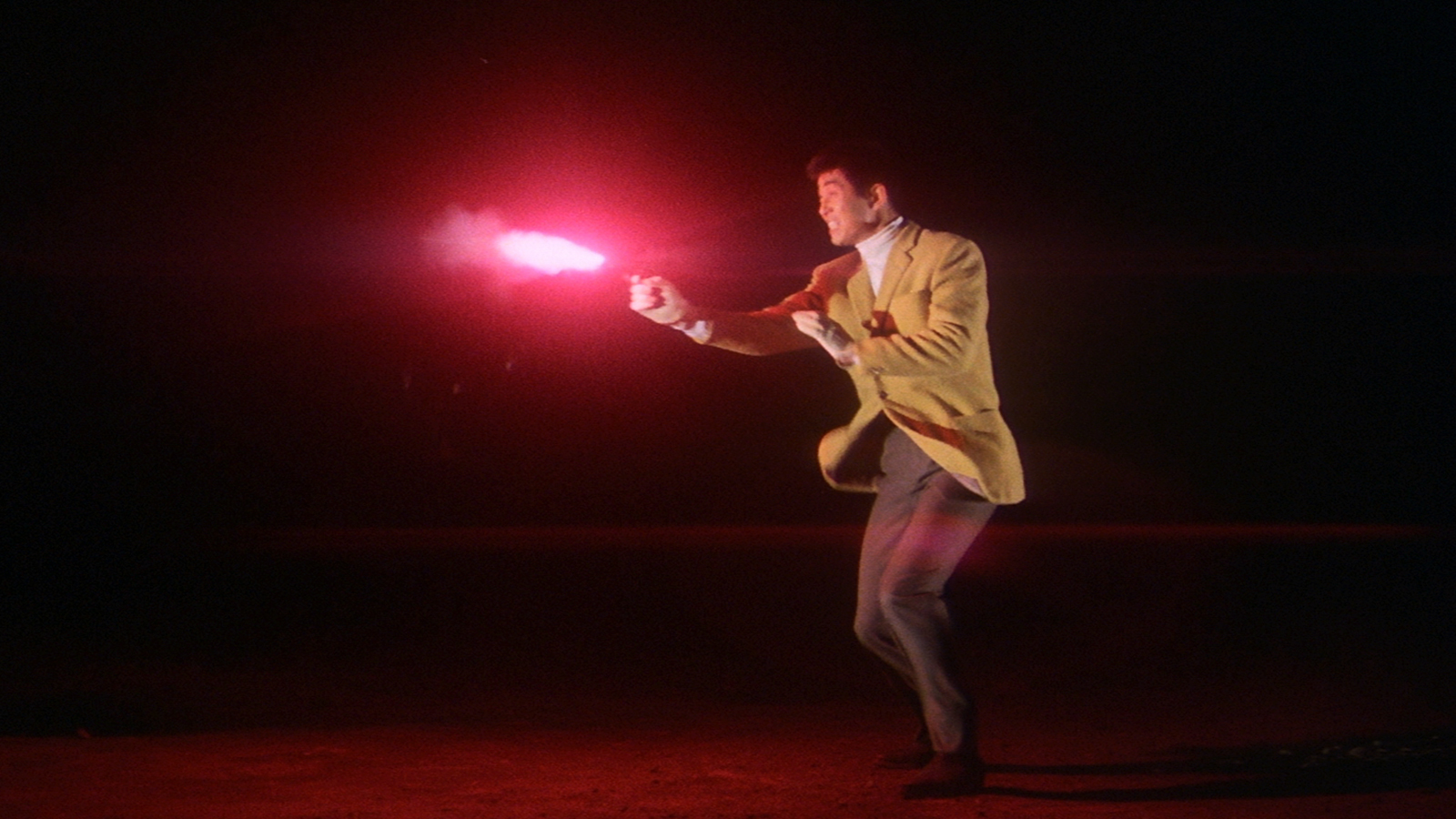
(Seijun Suzuki, 1966) · Tokyo Drifter, Suzuki's antepenultimate Nikkatsu feature, is the film he is most associated with internationally. From its catchy theme song that the hero Tetsu croons at every opportunity, to his signature powder-blue jacket, to the inexplicable lighting and color changes in its climactic shootout, it indulges in the anarchic energy of action movies. Its dispensation of plausibility allows Suzuki to revel in stylistic excess that approaches formal abstraction.
runtime: 82m format: DCP
1/16/2018 @ 7:00 PM
Harbour Toast: Victory in My Hands

(Seijun Suzuki, 1956) · In Suzuki's first directorial effort, a sailor has to help his younger brother out of a jam after the latter double crosses some gangsters in a horse-race fixing scheme. Print courtesy of the Japan Foundation Film Library.
runtime: 65m format: 35mm
1/16/2018 @ 8:30 PM
Satan's Town
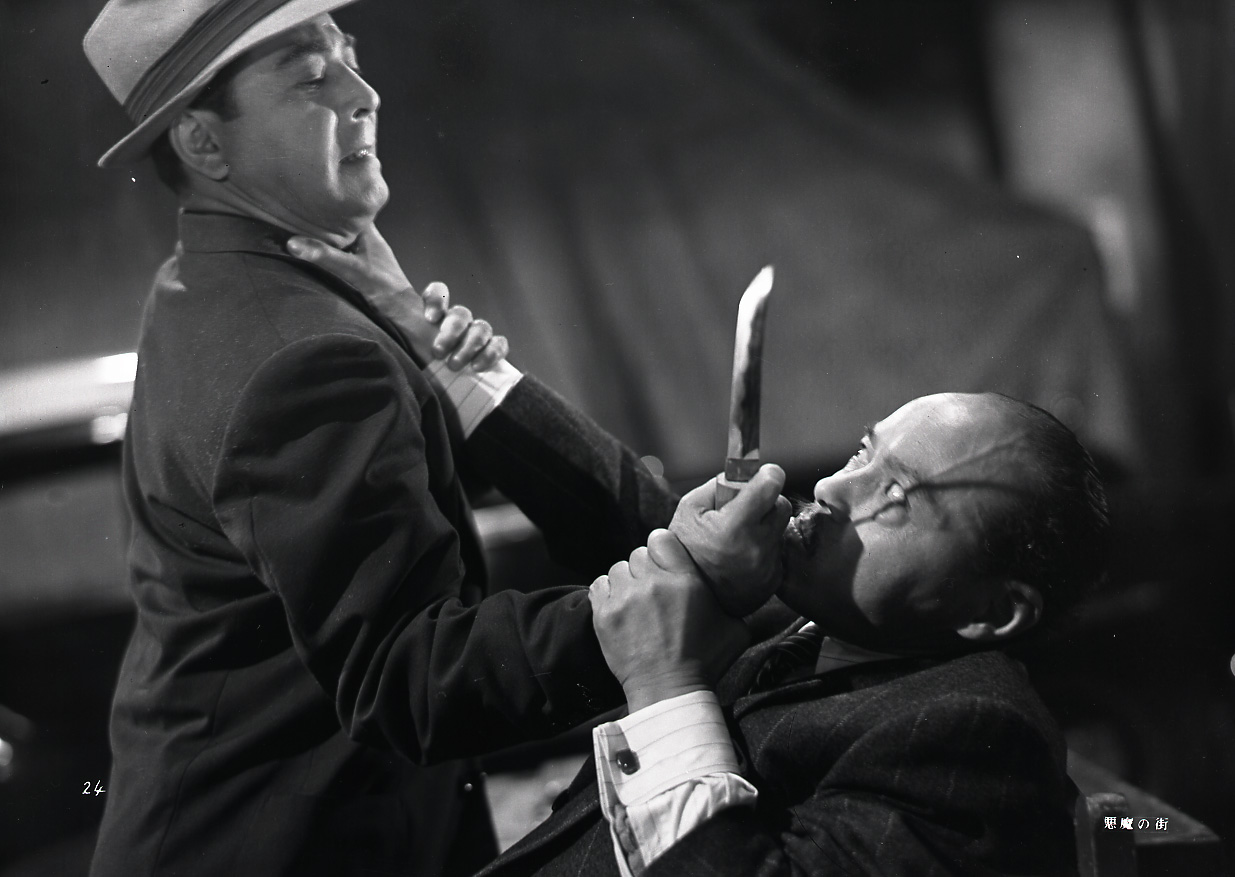
(Seijun Suzuki, 1956) · Suzuki's third film (and his first to feature gangsters as protagonists) focuses on a boss and his henchman after they escape from prison. Suzuki shows his promise through cleverly constructed editing and bold compositions, particularly in the film's murder scenes (of which there are many). Print courtesy of the Japan Foundation Film Library.
runtime: 79m format: 35mm
1/23/2018 @ 7:00 PM
Eight Hours of Terror
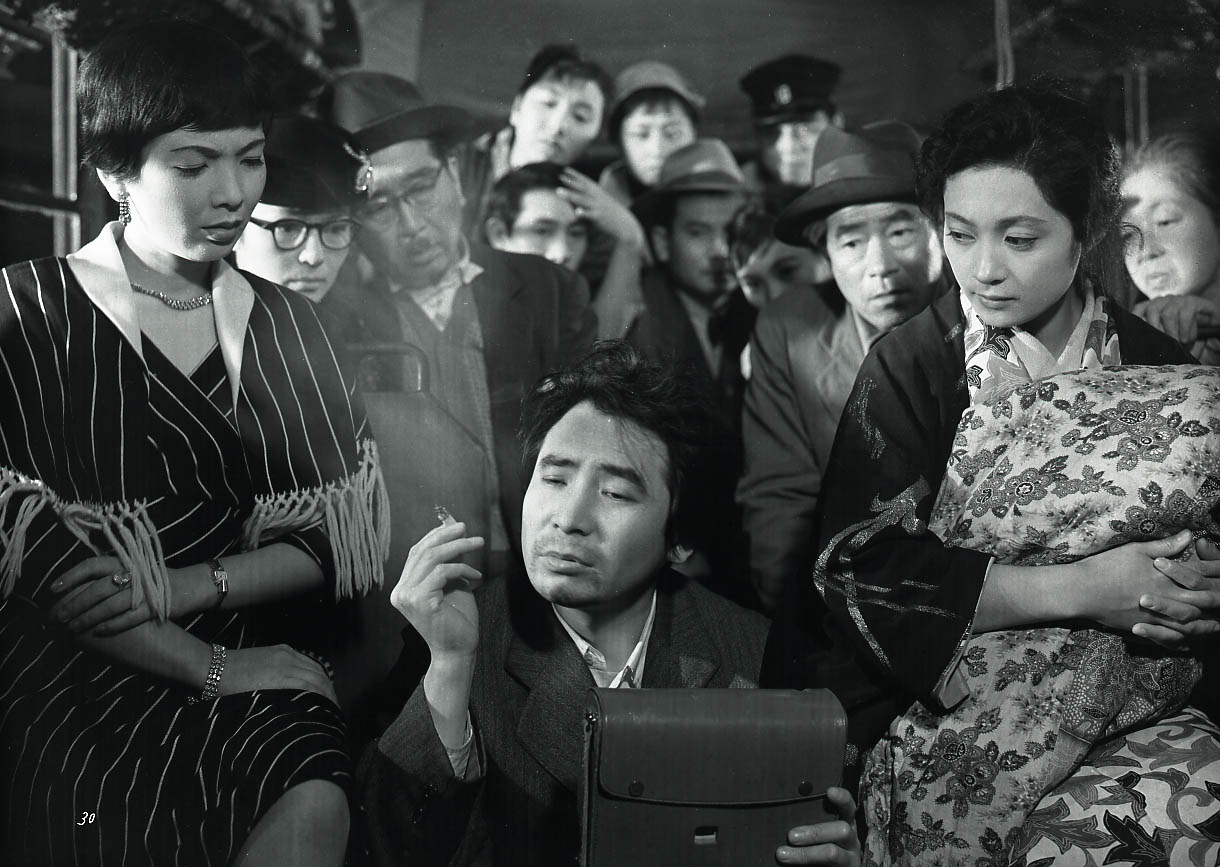
(Seijun Suzuki, 1957) · Due to a typhoon, a train is unable to continue, forcing its passengers to take a bus through the countryside. To make matters worse, some escaped criminals try to hijack the bus. Eight Hours of Terror is Suzuki's riff on one of his favorite films, John Ford's Stagecoach, as well as one of his best early thrillers. Print courtesy of the Japan Foundation Film Library.
runtime: 77m format: 35mm
1/23/2018 @ 8:45 PM
Love Letter
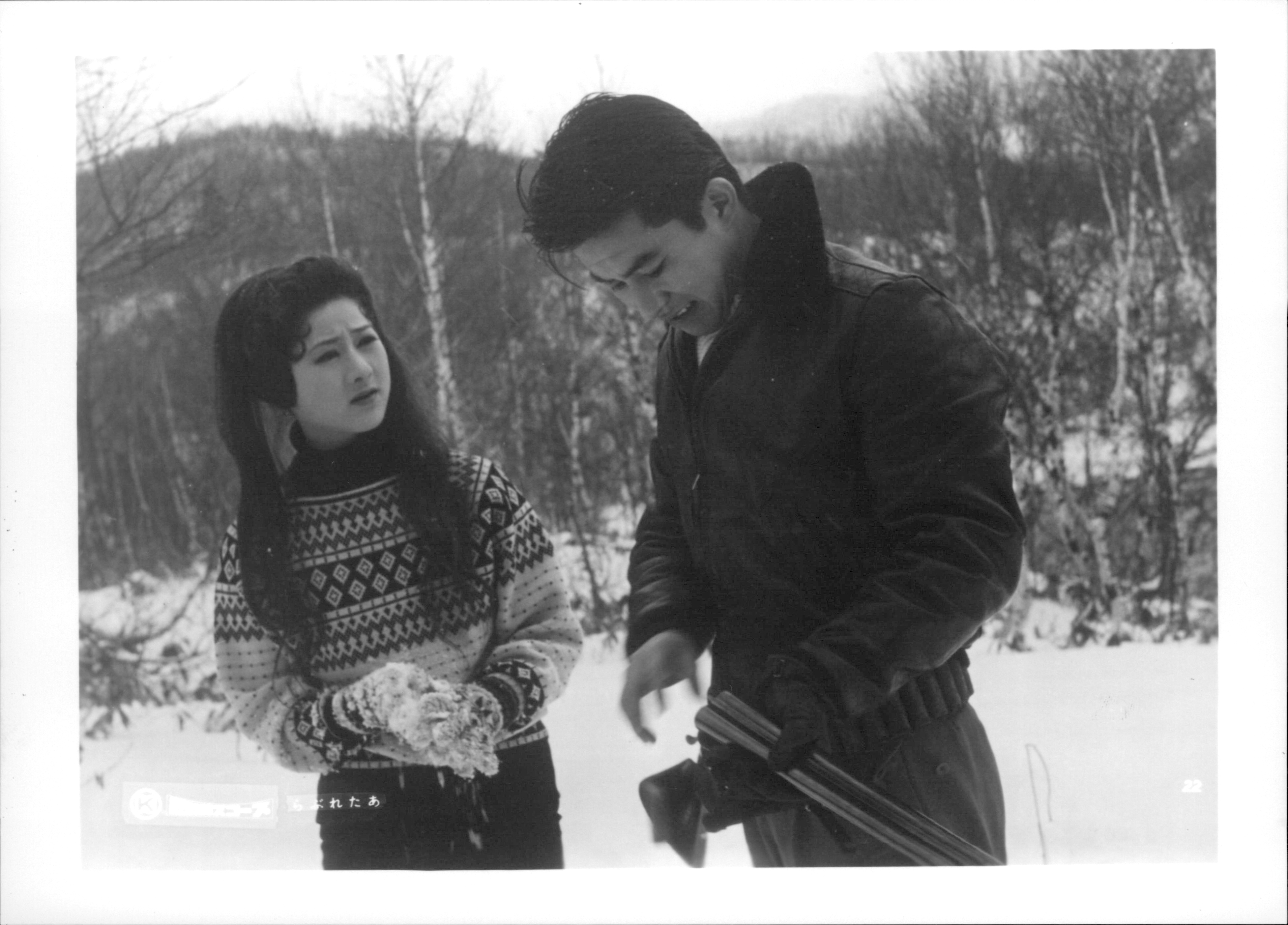
(Seijun Suzuki, 1959) · A nightclub singer goes to visit her ranger boyfriend when he stops replying to her letters. With gorgeous landscape shots and scintillating subjective devices, Love Letter is evidence of Suzuki's versatility as a filmmaker. Print courtesy of the Japan Foundation Film Library.
runtime: 40m format: 35mm
1/30/2018 @ 7:00 PM
Young Breasts
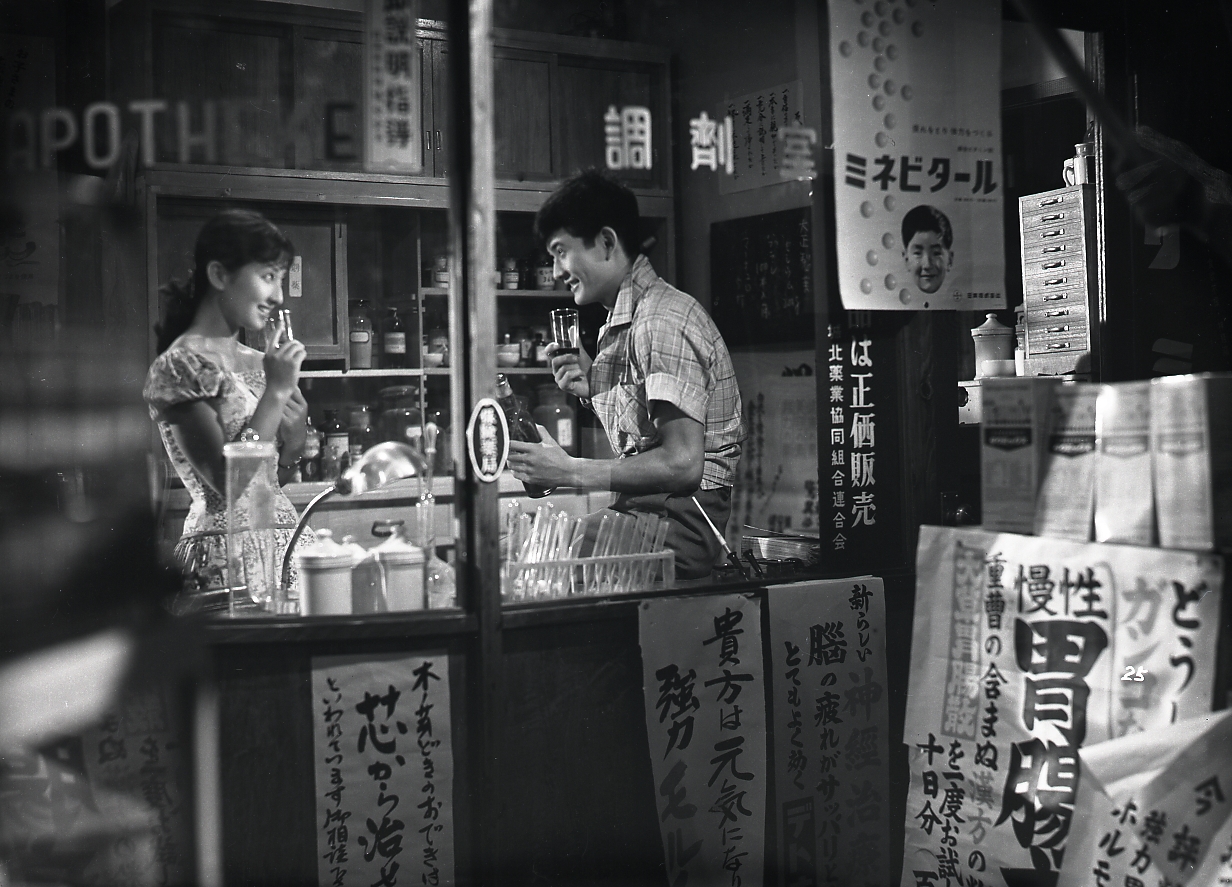
(Seijun Suzuki, 1958) · Social melodrama about juvenile delinquents is not the genre most closely associated with Suzuki. This is the first film in which he experiments with using encounters with works of art (both paintings and films-within-films) as a way of blurring or breaking down subjective and diegetic boundaries. Young Breasts is an early exercise in the formal play Suzuki would become famous for, and, together with Everything Goes Wrong, Suzuki's best pre-1963 film. Print courtesy of the Japan Foundation Film Library.
runtime: 90m format: 35mm
2/6/2018 @ 7:00 PM
Everything Goes Wrong
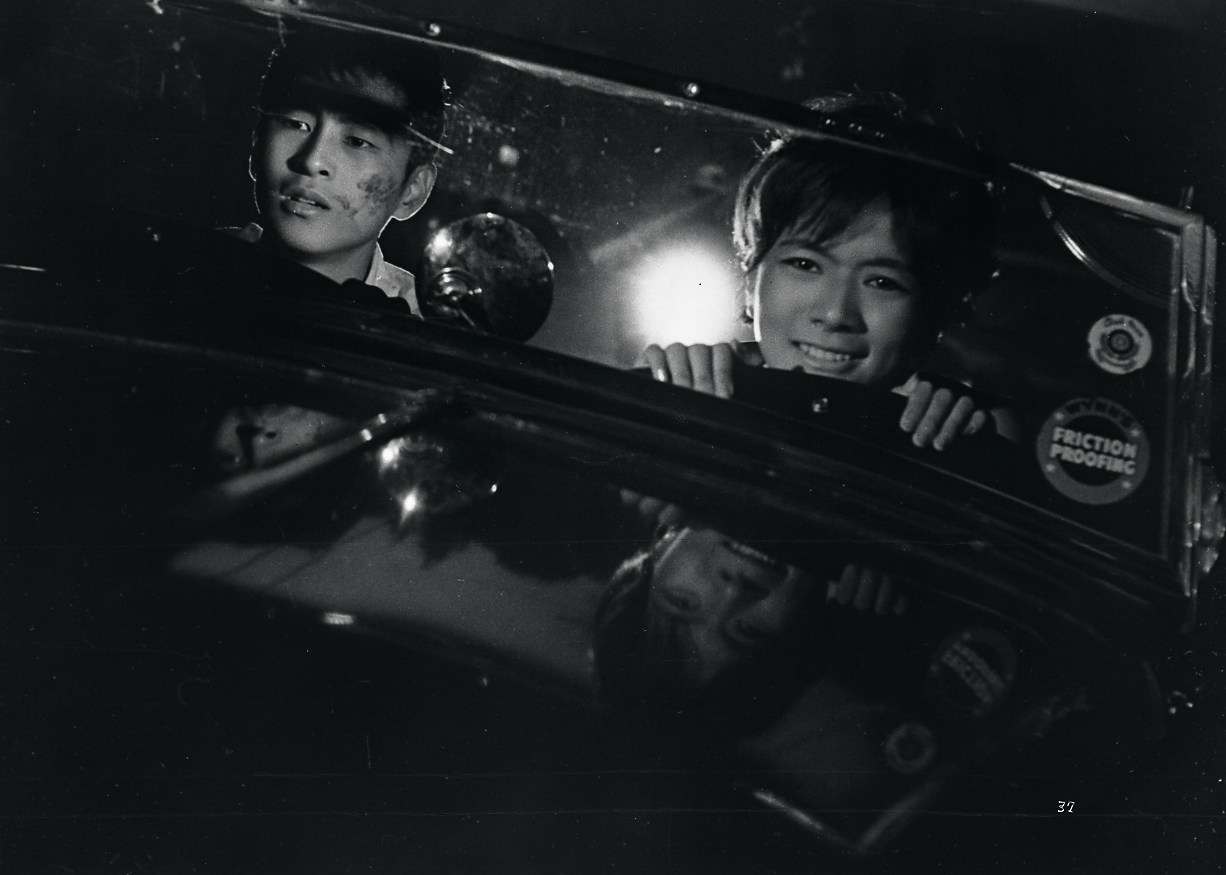
(Seijun Suzuki, 1960) · Jiro tries to frame his mother's boyfriend using a girl who hangs out at the same bar. Made the same year as Oshima's Cruel Story of Youth, Everything Goes Wrong similarly channels the sun-tribe's rage against its parents' generation. Print courtesy of the Japan Foundation Film Library.
runtime: 71m format: 35mm
2/6/2018 @ 8:45 PM
Fighting Delinquents
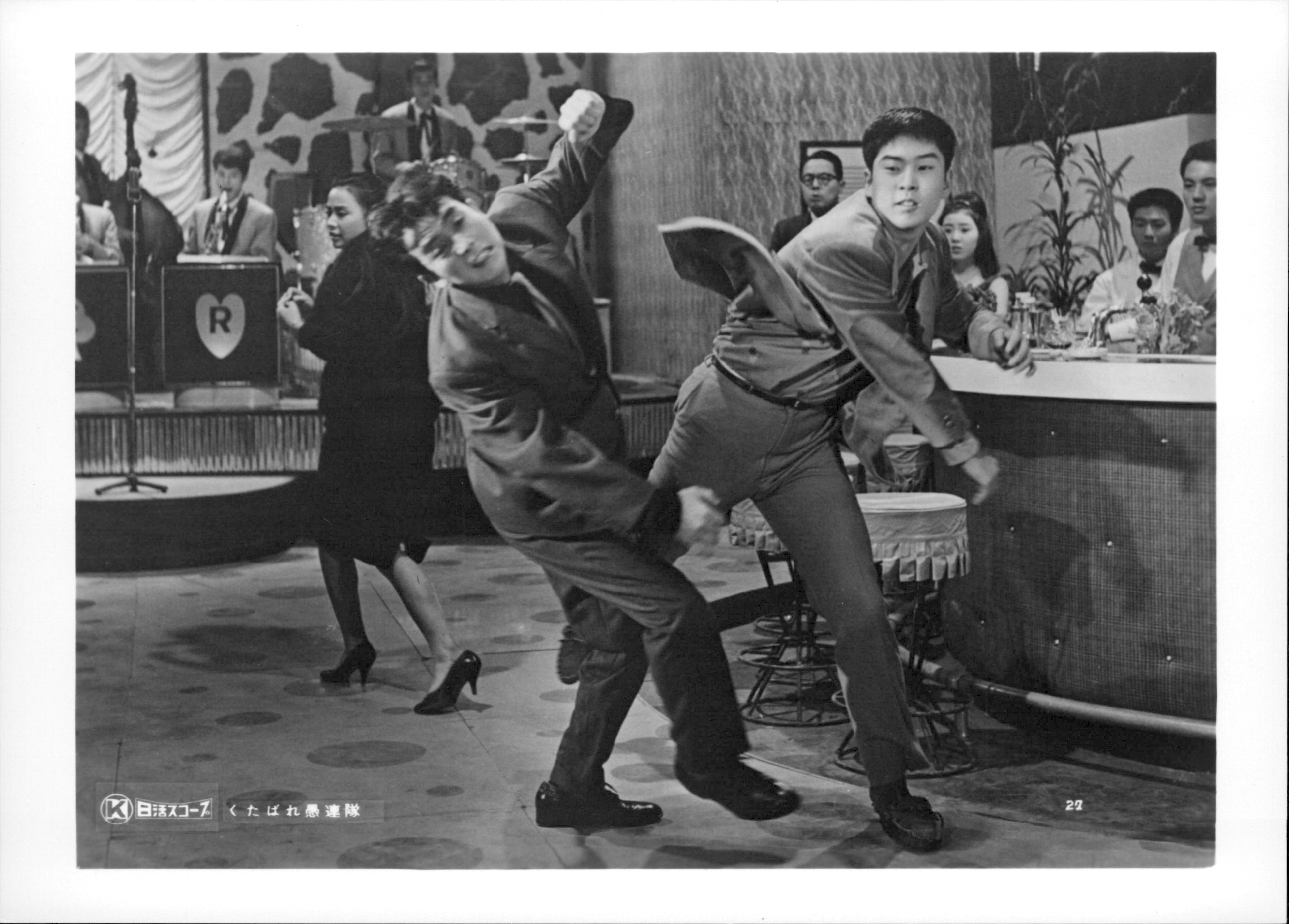
(Seijun Suzuki, 1960) · This is Suzuki's first film starring teen idol Wada Kōji. Kōji plays a young construction worker whose wacky antics annoy the stiff-necked adults of his town until he takes on a crooked real-estate developer and saves the community. It’s also Suzuki's first color film, and he paints the town red, as it were. Print courtesy of the Japan Foundation Film Library.
runtime: 80m format: 35mm
2/13/2018 @ 7:00 PM
Blood-Red Water in the Channel

(Seijun Suzuki, 1961) · Wada Kōji stars as an officer of the Coast Guard in a quaint seaside town who normally has nothing more to do than help ferry passengers and deal with the odd drunken sailor. Soon, however, he finds himself taking on a gang of smugglers and learning that one of the ringleaders is closer to home than he had realized. Blood-Red Water was shot on location and boasts some exciting action and adventure sequences on land and at sea. Print courtesy of the Japan Foundation Film Library.
runtime: 84m format: 35mm
2/20/2018 @ 7:00 PM
The Flowers and the Angry Waves

(Seijun Suzuki, 1964) · The Flowers and the Angry Waves is the follow-up to Kanto Wanderer, starring Kobayashi Akira as a yakuza foreman who elopes with his boss's fiancée and hides out as a construction worker in Tokyo. Suzuki's first film scripted by his longtime collaborator Kimura Takeo, this film is a more naturalistic take on the chivalry genre than others at the time, while still managing to work in some spectacular effects using an elaborate studio set. Print courtesy of the Japan Foundation Film Library.
runtime: 92m format: 35mm
2/27/2018 @ 7:00 PM
Born Under Crossed Stars

(Seijun Suzuki, 1965) · Jukichi sells milk door-to-door to pay for school, but, his father secretly gambles away the money to the Yakuza, leaving Jukichi to fight them off. Crossed Stars is a hilarious coming-of-age film and one of Suzuki's most underrated. Print courtesy of the Japan Foundation Film Library.
runtime: 97m format: 35mm
2/27/2018 @ 9:15 PM
A Tale of Sorrow and Sadness
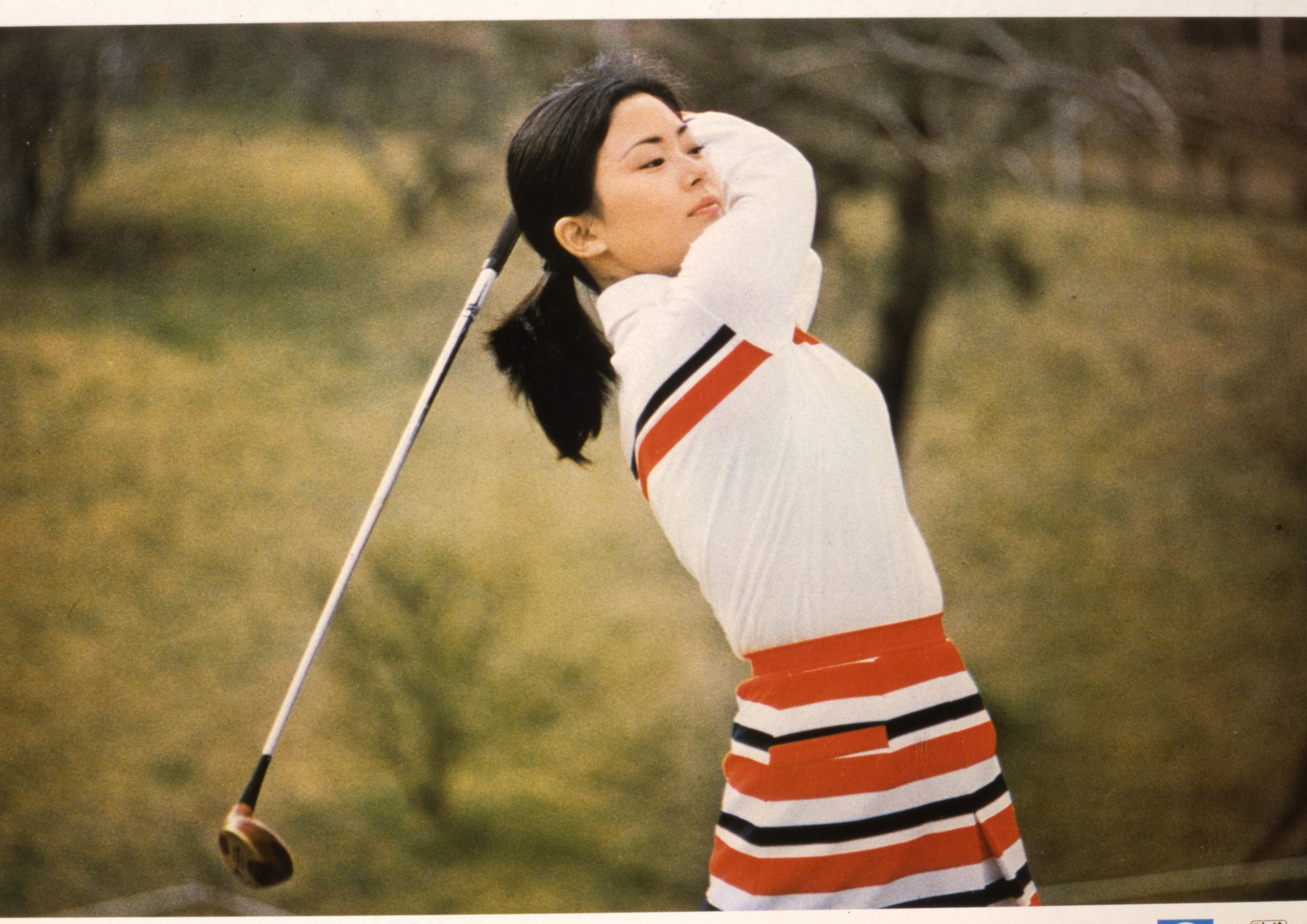
(Seijun Suzuki, 1977) · TV executives decide to make Reiko into a golf star for marketing purposes, allowing Reiko and her brother to move to a posh housing development. Everything goes well until a strange accident happens and her creepy neighbor begins blackmailing her... Print courtesy of the Japan Foundation Film Library.
runtime: 93m format: 35mm
3/6/2018 @ 7:00 PM
Capone Cries In His Sleep
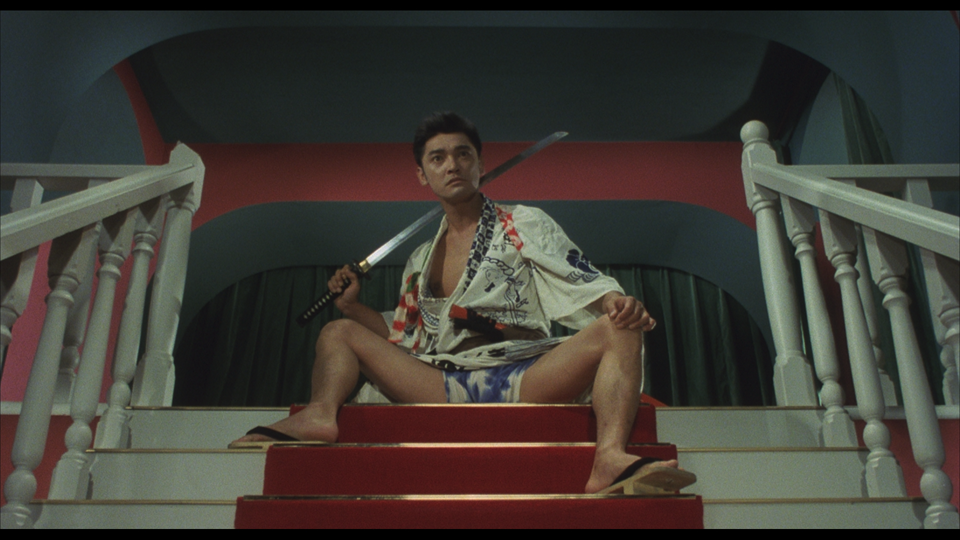
(Seijun Suzuki, 1984) · A rakugo performer dreams of performing in front of Al Capone, whom he thinks is the US president. He embarks on an odyssey to San Francisco and Chicago, filmed in an abandoned amusement park in Japan. He encounters gangsters, cowboys, jazz musicians, minstrel singers, the KKK, and Interment Camps for Japanese Americans. One of Suzuki's most bizarre films, Capone is chock full of pop-culture references, amounting to a surreal vision of American culture. Print courtesy of the Japan Foundation Film Library.
runtime: 130m format: 35mm



